#22 February 1732
Link
“ Just a week after Weed foretold his electoral doom, the Democrats chose as a presidential candidate General George McClellan, formerly commander of the Army of the Potomac, in a transparent attempt to appeal to soldiers. But to appease the anti-war wing of the party, they also called for an immediate end to the war. They also rejected the new, popular measures the national government had undertaken since 1861—the establishment of state colleges, the transcontinental railroad, the new national money, and the Homestead Act—insisting on “State rights.”
Every time someone talks about States’ Rights, they are talking about steering away from laws and programs designed to help everyone. They are talking about putting themselves before everyone else. They are talking about some inkling they have that they deserve more, that they’re better, that they have needs that outweigh the rest of humanity.
Every time someone talks about States’ Rights, they’re talking about taking more for themselves and leaving you with less.
Every time someone talks about States’ Rights, you should happily give that person the middle finger.
11 notes
·
View notes
Text
THIS DAY IN GAY HISTORY
based on: The White Crane Institute's 'Gay Wisdom', Gay Birthdays, Gay For Today, Famous GLBT, glbt-Gay Encylopedia, Today in Gay History, Wikipedia, and more … February 22




1732 – George Washington, First President of the United States (d.1799); His stance on homosexuality, which at the time was punishable drastically throughout the colonies, was noticeably — even dramatically — relaxed in comparison to many of his cohorts. His personal correspondence and diaries bear this out.
Washington's letters state that he was less than thrilled with marital life ("not much fire between the sheets") and preferred the company of men — particularly the young Alexander Hamilton, whom he made his personal secretary — to that of women, as his letters attest. His concern for his male colleagues clearly extended to their personal lives. This was especially true of Hamilton, who he brought with him to Valley Forge, giving Hamilton a cabin to share with his then-lover, John Laurens, to whom Hamilton had written passionate love letters which are still extant.
Washington's passion was reserved for his work and for the men with whom he served closely, notably Hamilton and the Marquis de Lafayette. When Hamilton was a young soldier — later to be made Secretary of the Treasury by Washington — he was engaged in relationships with other men, as love letters he sent during the Revolutionary War prove.
Historians assert that passionate same-sex friendships were normative in the 18th century. At the same time, however, sodomy and open homosexuality were punishable by imprisonment, castration and even death, both in and out of the military.
While some have tried to make the case for Washington being gay predicated on his special friendships, there's nothing in his papers that could be considered proof. However, if nothing more, Washington was certainly gay-friendly.
The most succinct evidence for this was Washington's clear "Don't Ask, Don't Tell" policy when it came to same-sex coupling among his regiments at Valley Forge.
Renowned gay historian Randy Shilts makes the case for Washington's ever-pragmatic as well as compassionate approach to same-sex relationships in "Conduct Unbecoming: Gays and Lesbians in the U.S. Military."
Shilts details how Washington merely signed the order for discharge of a soldier caught in flagrante with another soldier, and suggests that if Lt. Col. Aaron Burr had not forced the issue, the soldier might have remained at Valley Forge instead of being the first documented case of a discharge for homosexuality in the Continental Army on March 15, 1778 at Valley Forge.
The soldier was court-martialed by Burr, but that was the extent of it. Washington did not flog him, imprison him or, as Jefferson had required as part of Virginia law as punishment for sodomy, have him castrated. Washington could even have had the soldier executed. He did none of these things. The soldier just walked away.
What makes this so stunning and an irrefutable proof of Washington's leniency on homosexuality in the military is the context. When Lt. Gotthold Frederick Enslin was drummed out of the corps (literally, because being discharged dishonorably from the military was a dramatic affair that included a solemn drum beat, a tearing of the uniform and a breaking of the sword over the head of the discharged soldier) for homosexuality, it seems that Washington signed the order for discharge more because the case involved fraternization below rank. According to military documents, Enslin had been caught having sexual relations with a private - John Monhart – by Ensign Anthony Maxwell, and Washington frowned upon fraternization among the ranks. Monhart was neither court-martialed nor discharged.
That Washington normally looked the other way with same-sex couples is most obvious in his dealings with Maj. Gen. Frederich Wilhelm von Steuben, the Prussian military genius he enlisted to help him at Valley Forge. Von Steuben arrived two weeks before Enslin's discharge and arrived with his young French assistant, Pierre Etienne Duponceau, who was presumed to be his lover, in tow, making Enslin's subsequent discharge ironic.
Von Steuben is perhaps the best-known gay man in American military history. Although his sexual orientation is rarely mentioned, his role in winning the Revolutionary War was incomparable and second only to Washington's own. But Von Steuben came to Valley Forge as a known homosexual: he had been implicated in relationships with boys and young men and had been expelled from the court of Frederick the Great for homosexual behavior and was on the verge of being prosecuted when he left Germany for France.
Von Steuben's relationship with Washington was close and there were no conflicts with Washington over von Steuben's sleeping arrangements at Valley Forge with his young Frenchman, Duponceau.
Over the decades of his military service, Washington spent his most emotional and life-altering time with other men. He certainly knew of the relationships between Hamilton and Laurens, von Steuben and Duponceau and yet brought none of them up on charges and historical record confirms that these men were indeed lovers.

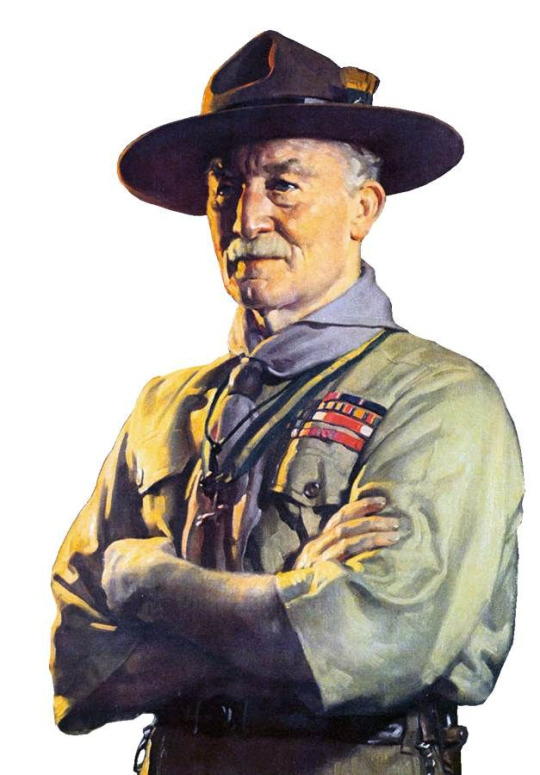
1857 – The first Boy Scout, Lord Baden Powell was born (d.1941). The British Army lieutenant-general, Baron and writer is considered the founder of the International Scouting Movement through the publication of his book "Scouting for Boys", published in 1908. Scouting is usually considered to have started on 1 August 1907 with a camp run by Robert Baden-Powell on Brownsea Island. Thereafter Baden-Powell began promoting Scouting in Britain, and Scouting for Boys, the first Scout handbook, appeared in six fortnightly installments in a boys' magazine starting in January 1908. Boys began forming Scout patrols and flooding Baden-Powell with requests for assistance. The Scouting movement developed rapidly from here, first through the British Empire, and shortly afterwards around the world.
Robert Baden-Powell's sexuality has been brought into question by his principal modern biographers, who have found a great deal of evidence indicating he was attracted to youthful men and to boys. While early biographies of Robert Baden-Powell tended towards sanctifying him, two important modern biographies, by Michael Rosenthal of Columbia University and professional biographer Tim Jeal, have reached the conclusion that he was probably a repressed homosexual. Baden-Powell "...consistently praised the male body when naked. At Gilwell Park, the Scouts' camping ground in Epping Forest, he always enjoyed watching the boys swimming naked, and would sometimes chat with them after they had just 'stripped off.'"
Jeal cites a revealing account by Baden-Powell of a visit to Charterhouse, his old public school, where he stayed with a bachelor teacher and housemaster who had taken large numbers of nude photographs of his pupils. Baden-Powell's diary entry reads: "Stayed with Tod. Tod's photos of naked boys and trees. Excellent." In a subsequent communication to Tod regarding starting up a Scout troop at the school, Baden-Powell mentions an impending return visit and adds: "Possibly I might get a further look at those wonderful photographs of yours." (According to R. Jenkyns, the album contained nude boys in "contrived and artificial" poses.) However Jeal also shows that paintings of nude boys were regarded as art, being hung in the Royal Academy each year without causing particular stir. Also Tod's photo's were accepted by parents and school authorities until the sixties, when they were destroyed.
Baden-Powell's admiration of the male body was physical, as being the best example of the beauty of nature, and with that of God, the creator: "A clean young man in his prime of health and strength is the finest creature God has made in the world." As an example he told about some Swazi chiefs with whom he met with some gymnastic instructors. The chiefs were not fully satisfied until they had had the men stripped and had examined themselves their muscular development. Baden-Powell himself did not write about or draw (he was a good amateur-artist) males in an erotic sense.
At age fifty-five Baden-Powell married twenty-three-year-old Olave St Clair Soames. Olave "altered her appearance to suit him, flattening her breasts and shearing her hair." Shortly after the marriage Baden-Powell began to suffer from agonizing headaches: these left him abruptly two years after the birth of their third child when he began sleeping apart from his wife: "With every hint of sex removed from a relationship he could get on reasonably well with women."

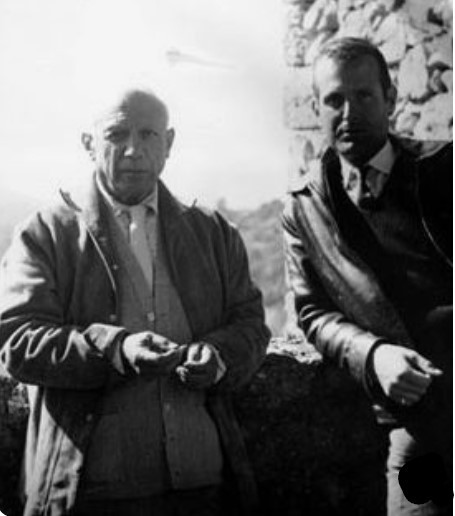
1924 – Sir John Richardson (d.2019) was a British art historian and Picasso biographer. He was once the lover of art collector Douglas Cooper.
Richardson was the elder son of Sir Wodehouse Richardson, founder of Army & Navy Stores. When he was thirteen he became a boarder at Stowe school, where he was taught something about the work of Picasso and other innovative painters.
At the beginning of WWII, when he was called up, he obtained a position in the Irish Guards, but almost immediately contracted rheumatic fever and was invalided out of the army. During this period he met and made friends with Francis Bacon and Lucian Freud, both of whom portrayed him later. He worked as an industrial designer before becoming a reviewer for The New Observer.
In 1949 he became acquainted with art historian and collector Douglas Cooper, with whom he would share his life for the next ten years.
In 1952, he moved to southern France (Provence) in 1952 with Douglas Cooper to Cooper's newly-acquired Château de Castille in the vicinity of Avignon and they transformed the run-down castle into a private museum of early Cubism. Cooper had been at home in the Paris art scene before World War II and had been active in the art business as well; by building his own collection, he also met many artists personally and introduced them to his friend. Richardson became a close friend of Picasso, Léger and de Staël as well. Back then he developed an interest in Picasso's portraits and contemplated creating a publication; more than 20 years later, these plans expanded into his four-part Picasso biography A Life of Picasso, whose last volume has not yet been published.
In 1960, Richardson left Cooper and moved to New York, where he organized a nine-gallery Picasso retrospective in 1962 and a Braque retrospective in 1964. Christie's then appointed him to open their US office, which he ran for the next nine years.
In 1999, 15 years after Cooper's death, Richardson published his biography (The Sorcerer's Apprentice. Picasso, Provence, und Douglas Cooper).
Besides working on his Picasso biography, he has been a contributor to The New Yorker and Vanity Fair.
Richardson was appointed Knight Commander of the Order of the British Empire (KBE) in the 2012 New Year Honours for services to art.
Richardson died in New York City on 12 March 2019, at the age of 95.


1926 – The actor, raconteur, and writer Kenneth Williams was beloved by the British public as much for his outrageously camp persona as for his considerable comedic gifts. (d.1988)
British audiences had long tolerated gay stereotypes in comedy but Williams "pushed the envelope," especially on radio, at a time when homosexuality was only just becoming acceptable to a wider public. His popularity on chat and game shows—where he often displayed a highly amusing, acidulous, and somewhat hysterical temperament—could also be said to have helped to widen general acceptance of non-straight behavior.
The son of a London hairdresser, Williams was born on February 22, 1926. He studied lithography before the war, but was evacuated during the blitz. He performed briefly with the Tavistock Players, an amateur dramatic troupe, but was inducted into the army in 1944. He began his professional performing career in Singapore just after World War II, as a member of Combined Services Entertainments.
In 1948, having returned to Britain, he embarked on a career that would encompass theater, film, cabaret, television, and radio. After a spell in repertory theater, Williams enjoyed critical acclaim as the Dauphin in a London production of George Bernard Shaw's Saint Joan (1954) and popular success in three celebrated revues, commencing with Share My Lettuce in 1957.
Williams's vocal talents brought him fame through two classic comedy radio shows of the 1950s and early 1960s: Hancock's Half Hour and Beyond Our Ken.
Especially memorable, considering prevailing attitudes to homosexuality at the time, were the "Julian and Sandy" sketches. Here, Williams played Julian to the actor Hugh Paddick's Sandy: a pair of screaming queens who burbled on cheerfully and provocatively in the gay argot polari to a middle-class audience of millions.
Beginning with Carry On Sergeant in 1958 and continuing through the late 1970s, he appeared in 26 of the slapstick, innuendo-filled "Carry On" films. In these he played characters that were, to a degree that varied from film to film, camp, knowing, and sarcastic. The "Carry On" films stereotyped him as a campy queen and eventually limited his career.
He befriended Joe Orton who wrote the role of Inspector Truscott in Loot (1966) for him and enjoyed holidays with Orton and Kenneth Halliwell in Morocco.
A gifted actor, Williams periodically attempted to play roles more challenging than the campy ones with which he was associated, but audiences seemed uncomfortable with this. His turn as Inspector Truscott in the original production of Orton's Loot (1965) was not well received by the audiences to whom he had become a household name.
Williams was homosexual by inclination but avoided sexual relationships. From his astonishingly frank diaries (published posthumously), it seems clear that he felt safer with the satisfaction afforded by masturbation rather than in an encounter with someone else.
By turns outrageous and conservative, he was plagued by disgust for what he considered to be typical gay lifestyles (promiscuous, disordered, camp, in some way sinful) and admired heterosexual family life. He wrote in his diaries of wanting to find his perfect companion, but carefully avoided involvement with any possible candidates.
Despite the ambiguity he felt about his sexuality, Williams supported the Albany Trust, which aimed to decriminalize sexual relationships between consenting male adults, a reform that was not adopted until 1967.
On April 15, 1988, he was found dead in his London flat. He had taken an overdose of barbiturate washed down with alcohol. The coroner recorded an open verdict on Williams' death.


1932 – Senator and longtime Gay rights ally Ted Kennedy was born on this date. (d.2009) Kennedy was a United States Senator from Massachusetts and a member of the Democratic Party. First elected in November 1962, he was elected nine times and served for 46 years in the U.S. Senate. At the time of his death, he was the second most senior member of the Senate, and is the fourth-longest-serving senator in U.S. history. For many years the most prominent living member of the Kennedy family, he was the son of Joseph P. Kennedy, Sr., the youngest brother of President John F. Kennedy and Senator Robert F. Kennedy, both victims of assassinations, and the father of former Congressman Patrick J. Kennedy.
Kennedy was not only one of the biggest advocates of LGBT rights in the U.S. Senate, (he received ratings of 100 percent from the Human Rights Campaign indicating that he voted in support of equality for LGBT persons) Kennedy was also one of the earliest. In 1971, two years after Stonewall, Kennedy stated his support of laws banning employment discrimination based on sexual orientation. Kennedy was also a supporter of same-sex marriage and was one of the fourteen senators to vote against the anti-Gay "Defense of Marriage Act" in 1996. He also voted against the proposed "Federal Marriage Amendment" in 2004 and 2006.

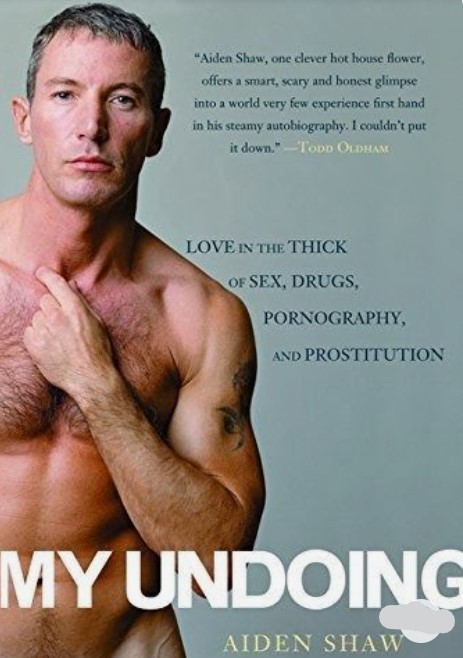
1966 – Aiden Shaw (born Aiden Finbar Brady) is a British author, musician, model and former gay porn star.
Shaw was born in Harrow, London, on 22 February 1966, the sixth of seven children in an Irish Catholic family. At 14, he began dressing in an "alternative" way, taking an interest in the New Romantic, Punk, & Goth fashion/youth culture scenes that were prominent at that time. At 16 he enrolled on a two-year Creative Arts foundation course at Nelson and Colne College. Then he spent two years at Manchester Youth Theatre. Afterwards he embarked on an Expressive Arts degree at the then Brighton Polytechnic (now University of Brighton), but after only a year he transferred to Harrow College of Higher Education to study Film, Television, Photography & Video. After leaving college he worked for a time directing and art-directing music videos for bands such as Peter Hook's (bass player of New Order) off-shoot project Dead Beat.
Changing his last name, Shaw began working in gay porn in the early 1990s. Since then he has appeared in over 50 films, often working with director Chi-Chi LaRue. In 1991, he won the award for Best Newcomer at the Adult Erotic Gay Video Awards. He retired from the porn industry in 1999 though made a brief reappearance in 2003-04.

In 1991, Shaw collaborated with the New York artist Mark Beard to produce a limited edition publication named Aiden. Beard had been sharing a London flat with Shaw at the time. The book included several portraits (mainly nude and semi-nude) of Shaw, with text written by Beard and Shaw (who at that time was still known by his birth name of Aiden Brady).
The book documents Mark Beard’s experience of living with Aiden, a male prostitute he met while working in London as a set designer. It consists of Beard’s text, his intimate—sometimes explicit—photographs of Aiden, and Aiden’s own words, interwoven Rashomon-like to reveal the coinciding ties and disconnects between sex and desire.
However, it was not until 1996 that Shaw wrote his first novel, Brutal. Also in 1996, The Bad Press published a collection of his poems, If Language at the Same Time Shapes and Distorts our Ideas and Emotions, How do we Communicate Love? He wrote two more novels; Boundaries (1997) and Wasted (2001), and an autobiography, My Undoing (2006) in which he openly discusses his life in the sex industry as a porn star and as a prostitute, his drug addiction (particularly crystal meth), and his HIV status (Shaw was diagnosed HIV positive in 1997). In 2007, Shaw completed an MA in Creative Writing at Goldsmiths University of London, following which he completed a second autobiography, Sordid Truths (2009).
Shaw wrote and produced two albums of music, performing lead vocals on "Whatever" with his band of the same name. He also produced performance artist Nina Silvert on "Nina Silvert does Aiden Shaw".
In 2011, Shaw trained to become a qualified English teacher. He also modelled for GQ magazine in Berlin. It was in this publication that he was spotted by and signed to Success Models in Paris. He currently resides in Barcelona.


1981 – Daniel Choi is a former American infantry officer in the United States Army who served in combat in the Iraq war during 2006-2007. He became an LGBT rights activist following his coming out on The Rachel Maddow Show in March 2009 and publicly challenged America's Don't Ask, Don't Tell policy, which forbade lesbian, gay and bisexual (LGB) service members from serving openly.
Choi is a native of Orange County, California, the son of a Korean-American Baptist minister. Choi was very active with extracurriculars during his high school years. He served as student body president, was on the varsity swim team, and was the marching band drum major. During his senior year, after watching Saving Private Ryan, he decided to attend West Point.
Choi graduated from West Point in 2003 with degrees in Arabic and environmental engineering. Choi served as an infantry officer in Iraq with the 10th Mountain Division in 2006 and 2007. In June 2008, he transferred from active duty Army to the New York National Guard. He served as a National Guardsman with the 1st Battalion, 69th Infantry, based in Manhattan.
Choi received a discharge letter following his coming out on The Rachel Maddow Show. In response, Choi penned an open letter to U.S. President Barack Obama and the United States Congress. In the letter, Choi challenged the morality and wisdom of Don't Ask, Don't Tell, writing that the policy is "a slap in the face to me. It is a slap in the face to my soldiers, peers and leaders who have demonstrated that an infantry unit can be professional enough to accept diversity, to accept capable leaders, to accept skilled soldiers."
Despite his appeal and a Courage Campaign petition signed by almost 162,000 people, on June 30, 2009, a panel of New York National Guard officers recommended that Choi be discharged from the military. As of February 2010, Choi was serving again in his National Guard reserve unit, the discharge having not yet been "finalized". On June 29, 2010, Choi's discharge was finalized.
Since Choi's coming out, 38 West Point alumni also came out and announced the formation of Knights Out, an organization of West Point alumni who support the rights of LGBT soldiers to serve openly. Choi was one of the founding members and is the spokesperson for the group. The organization offers "to help their alma mater educate future Army leaders on the need to accept and honor the sacrifices of lesbian, gay, bisexual and transgender troops."
Choi has also spoken at numerous gay rights events, including a march in Los Angeles following the California Supreme Court's affirmation of Proposition 8. On May 27, 2009, he addressed a demonstration of gay activists outside the Beverly Hilton Hotel, where President Barack Obama was speaking at a Democratic National Committee fund raising event. In addition, Choi spoke at the 2009 Pride Rally in New York City and served as a Grand Marshal alongside Knights Out in San Francisco's 2009 Gay Pride Parade.
In February 2010 Choi was selected to be a Grand Marshal of the 41st Annual New York LGBT Pride March by its producers, Heritage of Pride. At the event, Choi led the Pledge of Allegiance at the New York City Council Chambers.
On March 18, 2010, Choi and another ousted military officer, Capt. Jim Pietrangelo, handcuffed themselves to the fence of the White House. They were eventually removed with the use of a master handcuff key and arrested. Choi and Pietrangelo were initially set to be tried for "failure to obey a lawful order" on April 26, 2010. Trial was postponed until July 14, at which time the charges against both men were dropped.
On April 20, 2010, Choi and Pietrangelo again participated in a self-chaining protest on the White House fence with Petty Officer Larry Whitt, Petty Officer (Rtd.) Autumn Sandeen, Cadet Mara Boyd and Cpl. Evelyn Thomas. All six were removed with a master hand-cuff key and arrested
On October 12, 2010, U.S. federal judge Virginia Phillips ordered the Department of Defense to stop enforcing "don't ask, don't tell". On October 19, Judge Phillips further refused a federal government request to stay the order pending appeal. That same day, Dan Choi went to the Times Square recruiting station in New York to rejoin the U.S. Army. His request is "in process."
Following the repeal of "don't ask, don't tell" by Congress, Choi was present at the U.S. Interior Department to attend President Obama's signing of the bill on December 22, 2010.
On May 28, 2011, Choi was among a number of both Russian and foreign activists who were arrested by Moscow police when Moscow Pride was held in spite of a ban by city authorities.

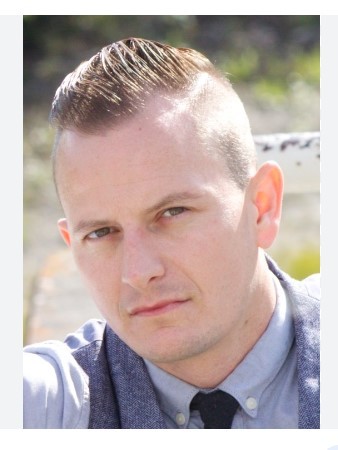
1982 – Kimball Allen is an American writer, journalist, playwright, and actor. He is the author of two autobiographical one-man plays: Secrets of a Gay Mormon Felon (2012) and Be Happy Be Mormon (2014). The latter premiered at Theatre Row in Manhattan on September 24 and 27, 2014, as part of the United Solo Theatre Festival. Allen also hosts the recurring Triple Threat w/ Kimball Allen, a 90-minute variety talk show at The Triple Door in Seattle.
Secrets of a Gay Mormon Felon is an autobiographical one-man play written and performed by Kimball Allen. In it, Allen reenacts the circumstances of his life that led him from a Mormon childhood through a life of addiction and, eventually, arrest.
Allen was born and grew up in Blackfoot, Idaho, a religious, conservative region, and he was one of eight children in an orthodox Mormon family. Even when he was small, Allen's strict Mormon parents were concerned by what they perceived as unusual behavior and mannerisms on his part, and his mother preemptively warned him, "Boys don't kiss boys."
At the age of 13, Allen was raped by an older man who befriended him at a mall. To cope with this trauma, which he could not tell anyone about, he surreptitiously turned to alcohol, and eventually drugs. He began living a double life – a devout Mormon on the surface, and underneath a teen struggling with his sexual orientation, the rape trauma, and his growing addictions.
Allen's family moved to Utah, the most heavily Mormon state in the U.S., when he was in his junior year of high school. Allen came out to his parents as gay when he was 19. His parents responded that they couldn't support him in that capacity and that they were repulsed by him. According to Allen, coming out as gay in the Mormon community was "committing social suicide", and he has also written that "I grew up gay in a loving, supportive Mormon family. When I came out, that love and support disappeared."
In adulthood, Allen's drug addictions spiraled further into cocaine, acid, and E, and eventually into a shopping addiction which led him to crave the high of larger and larger purchases. Given responsibility for a corporate credit card, he accidentally used it for a small expense of his own in 2010, and then started addictively embezzling the company's funds for luxuries via the card. The missing funds, totalling around $70,000, were noticed in 2011, and Allen landed in jail awaiting trial. He went through detox in the jail cell, and out of desperation began journal writing to make sense of how he ended up in that situation.
After admitting to his crimes and making reparations, coming to terms with his addictions, and realizing he needed help, Allen continued his journaling during his recovery process. A coherent narrative eventually took shape, and the self-examination eventually became a script, with the additional help of many hours viewing home videos of himself as a child.
The completed play, Secrets of a Gay Mormon Felon, premiered in Kansas City in the summer of 2012. It has also run in Honolulu and San Diego.
Allen's second one-man play, the one-hour Be Happy Be Mormon, premiered at Theatre Row in Manhattan on September 24, 2014, as part of the United Solo Theatre Festival, and due to the sold-out premiere it had a second performance on September 27. It previewed on September 4 and 5, 2014 in Seattle. It is described as "A voyeuristic look into the childhood of a Bambi-loving vegetarian, ballet slipper-wearing, Diet Coke-drinking gay Mormon Boy Scout." The play relates his upbringing "as a fabulous black sheep" in a Mormon family he doesn't relate to, through "colorful narration, private home movies, songs, dance and the occasional acrobatics".
Allen lived for many years in the Capitol Hill neighborhood of Seattle. In addition to his writing, performing, and gay activism, he is a media and PR representative specializing in arts and entertainment. Until March 2015, he was also the aquatics director of Seattle's Meredith Mathews East Madison YMCA. He married Scott Wells in October 2016. As of late 2017, they live in Scottsdale, Arizona. He is an Eagle Scout.


2000 – James Chukwueze Obialor, popularly known as James Brown, is a Nigerian internet personality, dancer and cross dresser who was noted in 2018 following a viral video in which he said the phrase "They did not caught me" following an arrest by the police. He was arrested alongside 46 others for being allegedly gay and spent a month at the Ikoyi Correctional Facility. The case against him was later dismissed by a court.
James Brown released a single titled "Hey Dulings" in 2021 after a catchphrase he uses to address his fans on social media.
He claims to have been infected with HIV at birth.


2009 – On this date Dustin Lance Black won the Oscar for Best Original Screenplay for his work on "Milk."
On accepting the award Black said:
"I want to thank my mom who has always loved me for who I am, even when there was pressure not to. But most of all, if Harvey had not been taken from us 30 years ago, I think he'd want me to say to all of the Gay and Lesbian kids out there tonight who have been told that they are less than by their churches or by the government or by their families that you are beautiful, wonderful creatures of value and that no matter what anyone tells you, God does love you and that very soon, I promise you, you will have equal rights, federally, across this great nation of ours."
(Wild applause from the audience.)



19 notes
·
View notes
Text
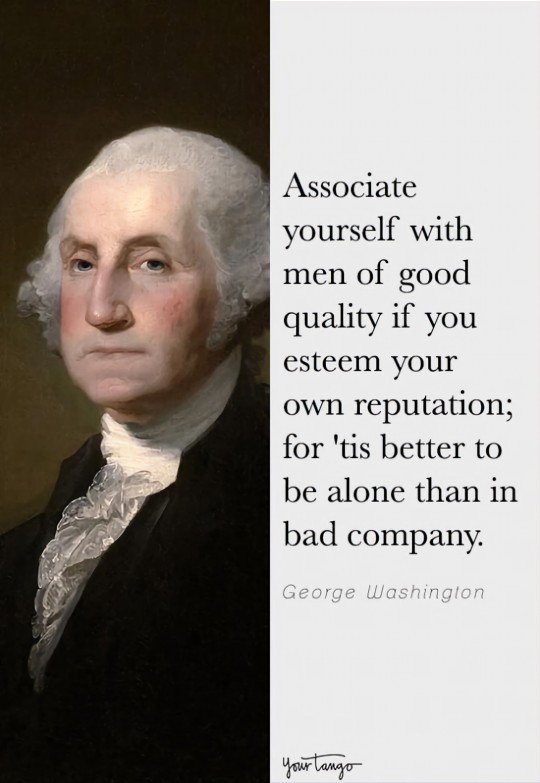
Happy President's Day 🇺🇲
George Washington who born February 22, 1732, had a successful liquor distiller business and was only a scholar in name because he never attended college.
Tidbits about other U.S. presidents:
•John Adams and Thomas Jefferson both died on July 4.
•James Madison was the shortest president.
•John Quincy Adams went skinny-dipping in the Potomac River daily.
•John Tyler was a father to 15 children.
•Abraham Lincoln was the tallest president at 6’4”, may have had Marfan Syndrome, a genetic disorder that causes people to be very tall, thin and long limbed.
•Andrew Johnson apparently cared for a family of White House mice, which he called “the little fellows.”
•Franklin D. Roosevelt was a movie buff.
•Gerald Ford used to be a model before president and a star football player at the University of Michigan he turned down offers from both the Detroit Lions and Green Bay Packers.
#president#love#presidents day#united states#holiday#john adams#thomas jefferson#james madison#john quincy adams#john tyler#abraham lincoln#andrew johnson#franklin d. roosevelt#gerald ford#george washington
9 notes
·
View notes
Text
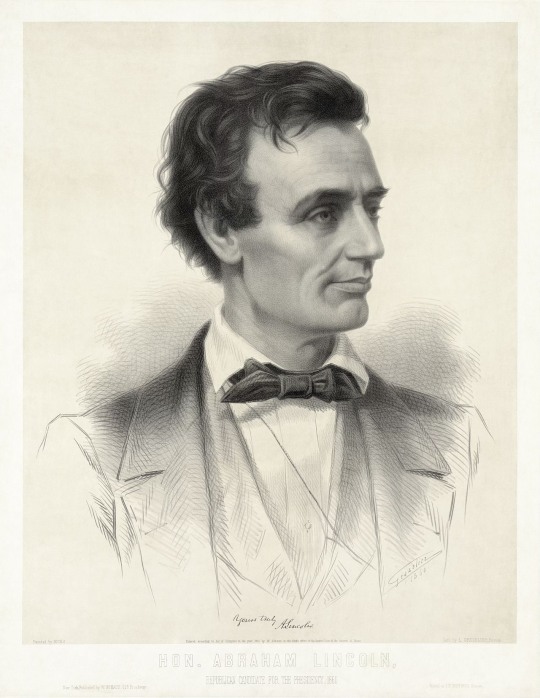
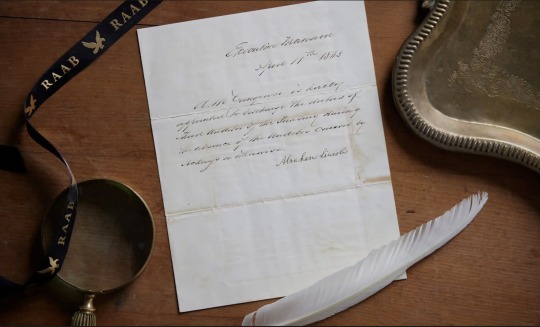
An original document signed by President Abraham Lincoln four days before his assassination on 15 April 1865. Photograph: Raab Collection
* * * *
LETTERS FROM AN AMERICAN
February 18, 2024
HEATHER COX RICHARDSON
On the third Monday in February, the U.S. celebrates Presidents Day, a somewhat vague holiday placed in 1968 near the date of George Washington’s birthday on February 22, 1732, but also traditionally including Abraham Lincoln, who was born on February 12, 1809. This year, that holiday falls on February 19.
That the American people in the twenty-first century celebrate Abraham Lincoln as a great president would likely have surprised Lincoln in summer 1864, when every sign suggested he would not be reelected and would go down in history as the man who had permitted a rebellion to dismember the United States.
The news from the battlefields in 1864 was grim. In May, General U. S. Grant had taken control of the Army of the Potomac and had launched a war of attrition to destroy the Confederacy. In May and June, more than 17,500 Union soldiers were killed or wounded at the Battle of the Wilderness, 18,000 at Spotsylvania, and another 12,500 at Cold Harbor. As the casualties mounted, so did criticism of Lincoln.
Those Republican leaders who thought Lincoln was far too conservative both in his prosecution of the war and in his moves toward abolishing enslavement had plotted with the humorless Treasury Secretary Salmon P. Chase, who perennially hankered to run the country, to replace Lincoln with Chase on the 1864 ticket.
In February they went so far as to circulate a document signed by Senator Samuel Pomeroy of Kansas, a key party leader, saying that “even were the re-election of Lincoln desirable, it is practically impossible against the union of influences which will oppose him.” Even if he could manage to pull off a reelection, the Pomeroy circular said, he was unfit for office: “his manifest tendency towards compromises and temporary expedients of policy” would make the “dignity and honor of the nation…suffer.”
This was no small challenge: Chase had been in charge of remaking the finances of the United States, and he had both connections and Treasury employees all over the country who owed their jobs to him. In an era in which political patronage meant political victories, he had a formidable machine.
Lincoln managed to quell the rebellion from the radicals. In June 1864, soon after the party—temporarily renamed the National Union Party to make it easier for former Democrats to feel comfortable voting for Republicans—met to choose a presidential candidate, Chase threatened to resign from the Cabinet, as he had done repeatedly. In the past, Lincoln had appeased him. This time, Lincoln accepted his resignation.
But conservatives, too, were in revolt against Lincoln.
Crucially, Thurlow Weed, New York’s kingmaker, thought Lincoln was far too radical. Weed cared deeply about putting his own people into the well-paying customs positions available in New York City, and he was frequently angry that Lincoln appointed nominees favored by the more radical faction.
That frustration went hand in hand with anger about policy. Weed was upset that the Republicans were remaking the government for ordinary Americans. The 1862 Homestead Act, which provided western land for a nominal fee to any American willing to settle it, was a thorn in his side. Until Congress passed that law, such land, taken from Indigenous tribes, would be sold to speculators for cash that went directly to the Treasury. Republicans believed that putting farmers on the land would enable them to pay the new national taxes Congress imposed, thus bringing in far more money to the Treasury for far longer than would selling to speculators, but Weed foresaw national bankruptcy.
Even more than financial policy, though, Weed was unhappy with Lincoln’s 1863 Emancipation Proclamation, which moved toward an end of human enslavement far too quickly for Weed.
On August 22, Weed wrote to his protégé Secretary of State William Henry Seward that he had recently “told Mr. Lincoln that his re-election was an impossibility…. [N]obody here doubts it; nor do I see anybody from other states who authorises the slightest hope of success.”
“The People are wild for Peace,” he wrote, and suggested they were unhappy that “the President will only listen to terms of Peace on condition Slavery be ‘abandoned.’” Weed wrote that Henry Raymond, another protégé who both chaired the Republican National Committee and edited the New York Times, “thinks Commissioners should be immediately sent to Richmond, offering to treat for Peace on the basis of Union.”
On August 23, 1864, Lincoln asked the members of his Cabinet to sign a memorandum that was pasted closed so they could not read it. Inside were the words:
“This morning, as for some days past, it seems exceedingly probable that this Administration will not be re-elected. Then it will be my duty to so co-operate with the President elect, as to save the Union between the election and the inauguration; as he will have secured his election on such ground that he can not possibly save it afterwards. — A. Lincoln”
But then his fortunes turned.
Just a week after Weed foretold his electoral doom, the Democrats chose as a presidential candidate General George McClellan, formerly commander of the Army of the Potomac, in a transparent attempt to appeal to soldiers. But to appease the anti-war wing of the party, they also called for an immediate end to the war. They also rejected the new, popular measures the national government had undertaken since 1861—the establishment of state colleges, the transcontinental railroad, the new national money, and the Homestead Act—insisting on “State rights.”
Americans who had poured their lives and fortunes into the war and liked the new government were not willing to abandon both to return to the conditions of three years before.
Then news spread that Rear Admiral David Farragut had taken control of Mobile Bay, the last port the Confederates held in the Gulf of Mexico east of the Mississippi River. On September 2, General William T. Sherman took Atlanta, a city of symbolic as well as real value to the Confederacy, and set off on his March to the Sea, smashing his way through the countryside and carving the eastern half of Confederacy in half again.
Reelecting Lincoln meant committing to fight on until victory, and voters threw in their lot. In November’s election, Lincoln won about 55% of the popular vote compared to McClellan’s 45%, and 212 electoral votes to McClellan’s 12. Lincoln won 78 percent of the soldiers’ vote.
After his reelection, Lincoln explained to a crowd come to serenade him why it had been important to hold an election, even though he had expected to lose it:
“We can not have free government without elections; and if the rebellion could force us to forego, or postpone a national election it might fairly claim to have already conquered and ruined us.”
Happy Presidents Day.
LETTERS FROM AN AMERICAN
HEATHER COX RICHARDSON
#History#Abraham Lincoln#Heather Cox Richardson#Letters from An American#defense of democracy#American Civil War
8 notes
·
View notes
Text
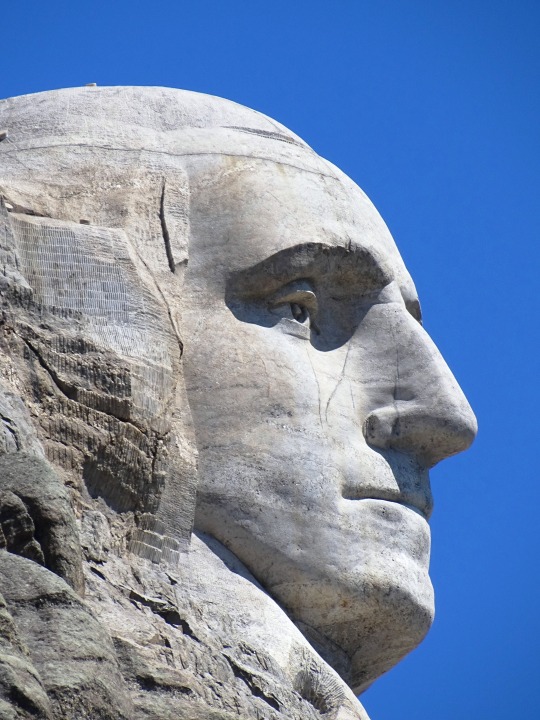
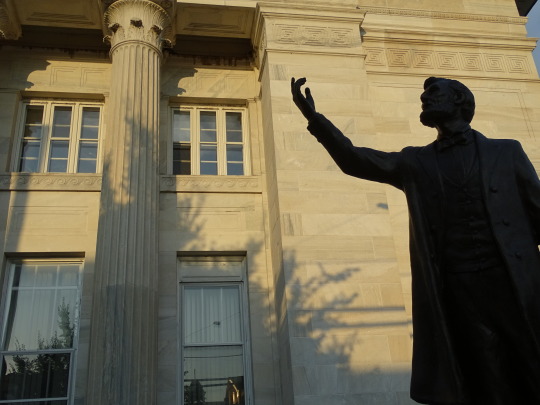
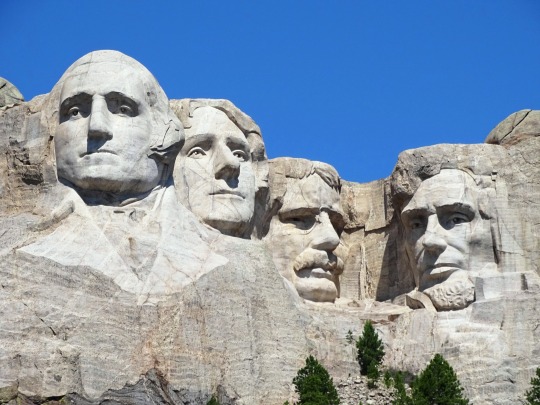

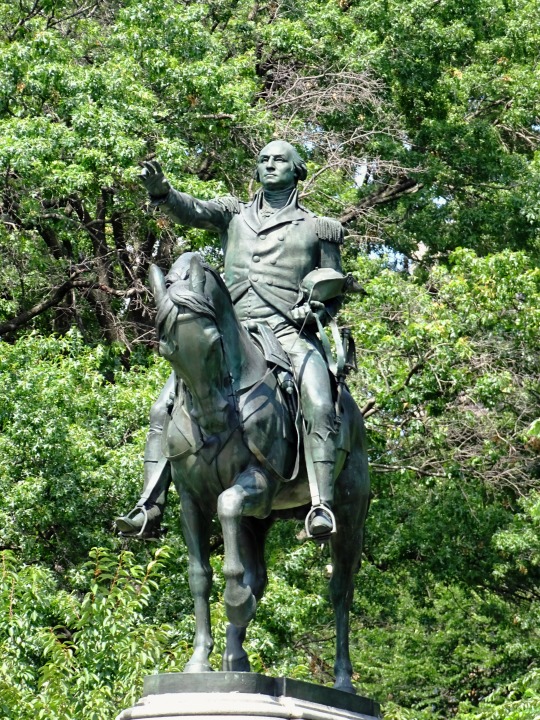

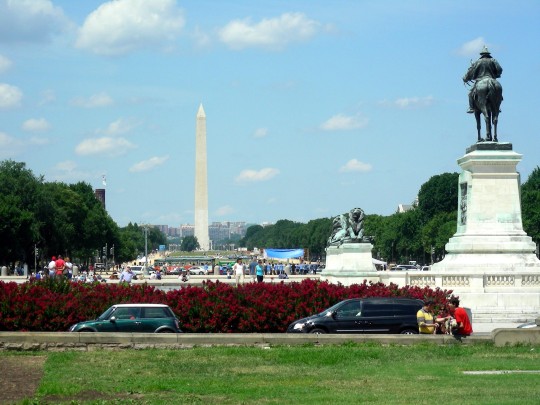


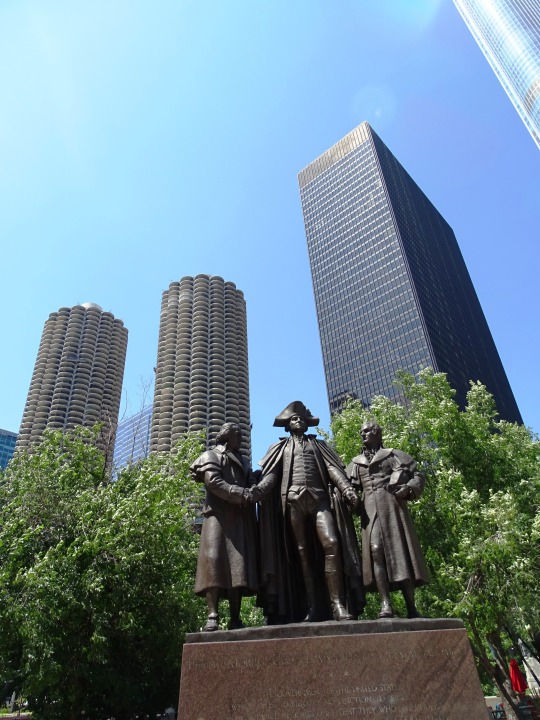
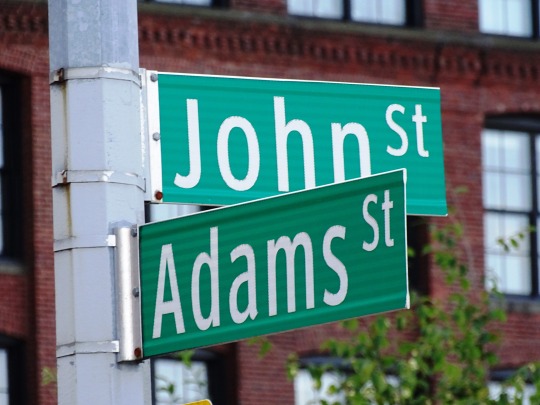
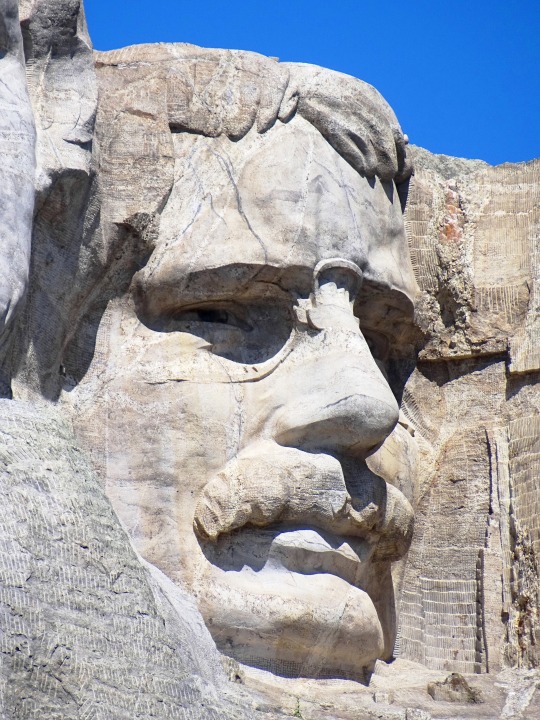

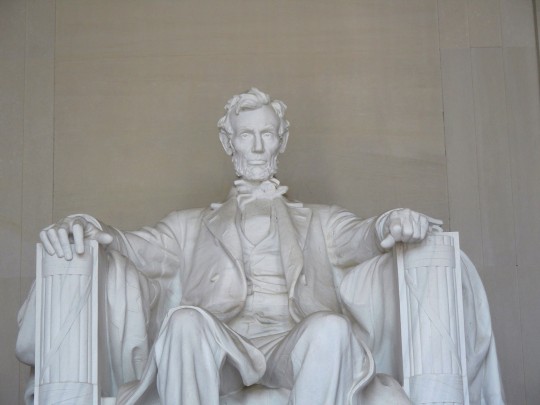
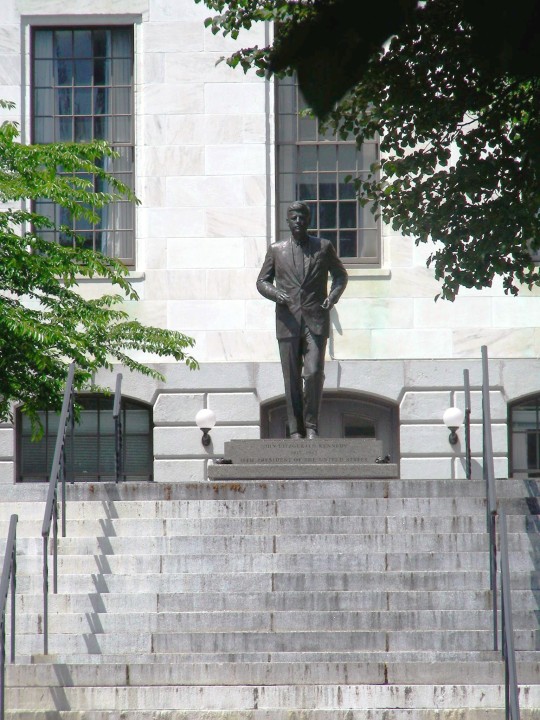
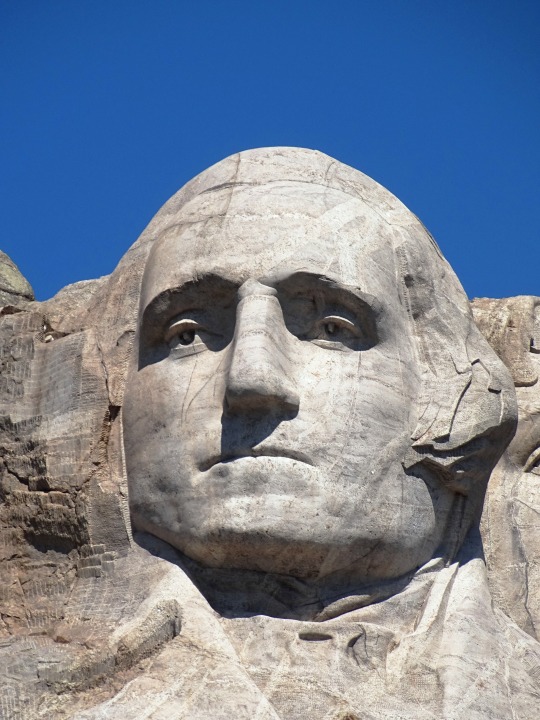

Presidents’ Day
Celebrated each year, on the third Monday in February, Presidents’ Day is a federal holiday to pay tribute to the presidents of the United States, including George Washington, the country’s first president, and Abraham Lincoln, who served during the Civil War. The holiday was originally established to honor Washington, but over time it has come to be a day to recognize all of the nation’s presidents. It is a day when many businesses and government offices are closed and people have the day off from work or school. Some people celebrate Presidents’ Day by participating in parades or other events, while others use it as a time to relax and spend time with family and friends.
History of Presidents’ Day
Presidents’ Day has its roots in the celebration of George Washington’s birthday, which has been observed as a national holiday in the United States since the late 18th century. Washington was born on February 22, 1732, and his birthday was first officially recognized as a national holiday by an act of Congress in 1879. The holiday was originally called “Washington’s Birthday,” and it was observed on February 22 each year.
In the 20th century, Congress passed the Uniform Monday Holiday Act, which was designed to create more three-day weekends for the nation’s workers by moving several holidays to Mondays. As part of this act, the holiday honoring Washington was moved to the third Monday in February and was renamed “Presidents’ Day” to recognize not just Washington, but all of the presidents of the United States. The holiday has been observed on the third Monday in February since 1971.
Presidents’ Day is not only a time to honor US presidents, but also a time to reflect on the important role that they have played in shaping the nation’s history.
How to Celebrate Presidents’ Day
There are many ways to celebrate Presidents’ Day. Some people choose to honor the holiday by taking part in parades or other events that are held in honor of the presidents. Others use the day as an opportunity to learn more about the presidents and their contributions to the country. Here are a few ideas for celebrating Presidents’ Day:
Attend a Parade, or Visit a Presidential Museum or Library
Many cities and towns hold parades on Presidents’ Day to celebrate the presidents of the USA. Look for one in your area and join in the celebration. There are also many museums and libraries dedicated to the presidents of the United States.
Read a Book About a President
There are many books available about US presidents. Consider reading one of these to learn more about a particular president or the history of the presidency:
Washington: A Life by Ron Chernow. This Pulitzer Prize-winning biography provides an honest portrait of George Washington, the man who became the United States’ first president.
Team of Rivals: The Political Genius of Abraham Lincoln by Doris Kearns Goodwin. This book chronicles the life and presidency of Abraham Lincoln, focusing on his ability to lead and manage a diverse group of advisors and cabinet members.
John F. Kennedy: A Biography by Michael O’Brien. A comprehensive biography of JFK, examining the life and legacy of the 35th president, from his childhood and education to his assassination in 1963.
The Reagan Diaries edited by Douglas Brinkley. A collection of diary entries written by President Ronald Reagan during his two terms in office, this book provides a unique, behind-the-scenes look at the Reagan presidency.
Barack Obama: The Story by David Maraniss. Offering a detailed and nuanced portrait of Barack Obama, the 44th president of the United States, it covers Obama’s early life, political career, and presidency, and offers insight into the man and his leadership style.
Watch a Movie or Documentary
There are many films and documentaries about US presidents, but here’s a few to get you started:
Lincoln (2012) – A biographical drama that stars Daniel Day-Lewis as Abraham Lincoln, the 16th president of the United States. It focuses on Lincoln’s role in the abolition of slavery and the passage of the 13th Amendment to the Constitution.
Truman (1995) – Starring Gary Sinise as the 33rd president of the United States, Harry S. Truman, the film covers Truman’s life, career, and presidency, including his role in the dropping of the atomic bombs on Japan and the Korean War.
JFK (1991) – A biographical drama starring Kevin Costner as President John F. Kennedy, this film examines the events leading up to Kennedy’s assassination and the investigations that followed.
Nixon (1995) – Stars Anthony Hopkins as President Richard Nixon. The film covers Nixon’s political career, the Watergate scandal and his eventual resignation from office.
The President (2019) – A documentary profiling President Barack Obama, covering his life, career, and presidency.
Participate in a Service Project
Presidents’ Day is a good time to think about ways to serve your community. Consider participating in a service project or volunteering your time to help others.
Source
#John Adams#John F. Kennedy#Presidents’ Day#George Washington#Mount Rushmore National Memorial#controversy#South Dakota#19 February 2024#third Monday in February#PresidentsDay#original photography#tourist attraction#landscape#cityscape#Theodore Roosevelt#Thomas Jefferson#Abraham Lincoln#Gutzon Borglum#President Millard Fillmore by Bryant Baker#Buffalo#New York#President Grover Cleveland by Bryant Baker#Washington DC#Ulysses S. Grant Memorial by Edward Pearce Casey#USA#New York City#travel#vacation#landmark#architecture
6 notes
·
View notes
Text
Who is the worst founding father?
Round 3: George Washington vs John Adams

George Washington (February 22, 1732 – December 14, 1799) was an American military officer, statesman, and Founding Father who served as the first president of the United States from 1789 to 1797. Appointed by the Continental Congress as commander of the Continental Army, Washington led Patriot forces to victory in the American Revolutionary War and served as president of the Constitutional Convention of 1787. Washington has been called the “Father of his Country” for his manifold leadership in the nation’s founding.
Washington was a slave owner who had a complicated relationship with slavery. During his lifetime, he owned a cumulative total of over 577 slaves, who were forced to work on his farms and wherever he lived, including the President’s House in Philadelphia. Yet, as president, he also signed laws passed by Congress that both protected and curtailed slavery. His will stated that one of his slaves, William Lee, should be freed upon his death and that the other 123 slaves should be freed on his wife’s death, though she freed them earlier during her lifetime.
Some accounts report that Washington opposed flogging but at times sanctioned its use, generally as a last resort, on both men and women slaves. Washington used both reward and punishment to encourage discipline and productivity in his slaves. He tried appealing to an individual’s sense of pride, gave better blankets and clothing to the “most deserving”, and motivated his slaves with cash rewards. He believed “watchfulness and admonition” to be often better deterrents against transgressions but would punish those who “will not do their duty by fair means”. Punishment ranged in severity from demotion back to fieldwork, through whipping and beatings, to permanent separation from friends and family by sale.
Washington endeavored to assimilate Native Americans into the Anglo-American culture. He also waged military campaigns against Native American nations during the Revolutionary War and the Northwest Indian War.
His closest advisors formed two factions, portending the First Party System. Secretary of the Treasury Alexander Hamilton formed the Federalist Party to promote national credit and a financially powerful nation. Secretary of State Thomas Jefferson opposed Hamilton’s agenda and founded the Jeffersonian Republicans. Washington favored Hamilton’s agenda, however, and it ultimately went into effect—resulting in bitter controversy.
In response to antislavery petitions that were presented in 1790, slaveholders objected and threatened to “blow the trumpet of civil war”. Washington and Congress responded with a series of racist measures: naturalized citizenship was denied to black immigrants; blacks were barred from serving in state militias; the Southwest Territory that would soon become the state of Tennessee was permitted to maintain slavery; and two more slave states were admitted. Washington signed into law the Fugitive Slave Act, which overrode state laws and courts, allowing agents to cross state lines to capture and return escaped slaves. Many free blacks in the north decried the law believing it would allow bounty hunting and the kidnappings of blacks.
John Adams (October 30, 1735 – July 4, 1826) was an American statesman, attorney, diplomat, writer, and Founding Father who served as the second president of the United States from 1797 to 1801. Before his presidency, he was a leader of the American Revolution that achieved independence from Great Britain. During the latter part of the war and in the early years of the nation, he served as a diplomat in Europe. He was the first person to hold the office of vice president of the United States, serving from 1789 to 1797. Adams was a dedicated diarist and regularly corresponded with many important contemporaries, including his wife and adviser Abigail Adams as well as his friend and rival Thomas Jefferson.
During his single term, Adams encountered fierce criticism from the Jeffersonian Republicans and from some in his own Federalist Party, led by his rival Alexander Hamilton. Adams signed the controversial Alien and Sedition Acts, and built up the Army and Navy in the undeclared naval war (called the “Quasi-War”) with France.
In an attempt to quell [public] outcry, the Federalists introduced, and the Congress passed, a series of laws collectively referred to as the Alien and Sedition Acts, which were signed by Adams in June 1798. All came within a period of two weeks, in what Jefferson called an “unguarded passion.” The Alien Friends Act, Alien Enemies Act, and Naturalization Acts targeted immigrants, specifically French, by giving the president greater deportation authority and increasing citizenship requirements. The Sedition Act made it a crime to publish “false, scandalous, and malicious writing” against the government or its officials. Adams had not promoted any of these acts, but was urged to sign them by his wife and cabinet. He eventually agreed and signed the bills into law.
In his bid in 1800 for reelection to the presidency, opposition from Federalists and accusations of despotism from Jeffersonians led to Adams losing to his vice president and former friend Jefferson, and he retired to Massachusetts.
#founding father bracket#worst founding father#founding fathers#george washington#john adams#amrev#brackets#polls#what a matchup
24 notes
·
View notes
Text
Goreg Washesaton for richie my beloved
so you may have noticed that this ongoing series of my research of "every historical figure" (/t) for @thereallvrb0y has been on pause for a few weeks and thats bc ive been STRUGGLING to find the rest of them, and i cant. so if anyone needs information on those people, i might just post the bullets from my notes bc im not doing all that work again FKSFKSH they still exist somewhere within my 3000 posts, but i cannot find them bc tumblr sucks <3 anyway, now for
George Washington (pt one)
Georgie was born at his family's plantation, Popes Creek, in Westmoreland County, Virginia, on February 22, 1732, a date that I have memorized for some reason when I don't even have my dad's birthday memorized (sorry dad). His parents were Augustine and Mary Ball Washington. Augustine was a very prominent plantation owner in the area, and also a justice of the county court, so he was a big deal. His first wife, Jane Butler, died and left him with two sons, Lawrence and Augustine Jr., and their daughter Jane.
George was the eldest of the kids from the second marriage. His other siblings were Elizabeth, Samuel, John Augustine, Charles, and Mildred.
The family eventually moved to another one of their properties, Little Hunting Creek, which would become Mount Vernon. They moved again four years later to Ferry Farm.
Augustine Sr. died when George was 11, leaving most of his property to the eldest sons from the first marriage. The remaining income maintained Mary and her children, and George would have been responsible for helping manage their plantation.
George never received a formal education since the funds for that were used on his older brothers. He only received instruction from private tutors. He would have studied reading, writing, basic legal forms, geometry, trigonometry, manners, penmanship, and comportment. I already made a post about his rules of civility, which was a big part of his education.
Mount Vernon, where I got most of my sources from on Washington, of course, has a lot of information on slavery, but I'm not really qualified to talk about all of that since I think it deserves its own separate research, but here's the link for that.
The Washingtons were, however, deeply entangled in the global "institution" (that phrasing makes me uncomfy, it sounds like a business yk). Washington inherited 10 enslaved people from his father, and went on to "inherit/purchase/rent/gain control of" more than 500 enslaved people.
Washington expressed racist sentiments up until the Revolutionary War, which greatly changed his perspective on the definition of liberty and who it applies to. He expressed wanting to free the enslaved people he was responsible for, but couldn't because of the backlash it would cause from him being an international celebrity. He would end up freeing the 123 enslaved people he was able to in his will (that's a whole complicated legal system designed to keep people and their families enslaved for as long as possible and it's honestly exhausting).
Anyway, back to the white people history. Washington got his first job as a surveyor, and it was the only thing he got formal training in. In the mid-1740s he got two surveying jobs (one of which was for a They were going to lay out lots within a large tract along the western frontier of Virginia, and into indigenous territory. He learned more surveying and gained important knowledge of the frontier (*foreboding dramatic movie sound effect*). At the end of the first day, he was shown "a bed of straw with one Threat Bear blanket with double its Weight of Vermin such as Lice Fleas etc. (sic)" He made a promise "not to Sleep so from that time forward chusing rather to sleep in the open Air before a fire. (sic)" This experience ended up being very important to him and getting him out of that cushy rich kid life (*another foreboding dramatic movie sound effect*)
His professional career began in 1749, and recieved a commission for the new Culpepper County (*insert Turn: Washington's spies theme song*), which was probably by the recommendation of Fairfax, who was working on the Governor's council. By 1752, he had completed nearly 200 surveys, totaling more than 60,000 acres. Honestly, I think that if he lived his entire life as just a surveyor, he wouldn't have gone gray in his 40's.
in 1753, Governor Robert fucking Dinwiddie that was this man's NAME in REAL LIFE learned that French troops had moved south from Canada to construct forts in the region south of Lake Erie, which was declared British territory. The area had commercial potential, and Dinwiddie was concerned that the French would fortify the forks of the Ohio River. So, he sent Washington, who was a major in the Virginia militia, to deliver a diplomatic eviction notice to the French in 1753. If that date sounds familiar its bc Georgie is about to have a few major fuck ups that you learned about in middle school. This was known as the Allegheny Expedition, but I have never called it that. It is and will always be the Ohio Eviction.
The expedition was aided by Christopher Gist and local indigenous people. They were escorted by O-non-dowa-gah (also known as Seneca) chief Tanacharison, two Haudenosaunee (Iroquois), and one from the Lenape (Delaware Nation).
This trip was rough. During the trip, Washington hiked for days through snowy woods, fell off a raft into the icy Allegheny River, nearly drowned, and had to spend a freezing night on an island without shelter on the 900 mile journey. I hate to say it, but this dad could beat up your dad. They reached Fort Le Boeuf on December 11, thank fuck. Washington's account was published by Dinwiddie in Williamsburg and London, giving him a reputation at the age of 22.
Despite all that effort, the French just ignored them lmao, bc like what's this little freak gonna do??? So, Dinwiddie dispatched Washington, now a Lieutenant Colonel to assert Virginia's claims a few months later with around 150 men.
They ended up skirmishing with French soldiers on the way, and killed 10 men, including the French commander, Joseph Coulon de Villiers, Sieur de Jumonville. The English under Washington (that's fun to say) retreated to a makeshift fort called Fort Necessity. Washington was forced to surrender when the French surrounded the fort with their indigenous allies. In those surrender terms, Washington accidentally admitted to assassination. This was the start of the French and Indian War, or the Seven Years War for my European fanbase (im so funny).
Washington resigned after that bc his dick was small and he was embarrassed. But, don't worry, his dick regrew and he returned to the frontier in 1755 to serve as a volunteer aide-de-camp (foreshadowing) to General Edward Braddock, who was kind of serving. Braddock had been sent from the King to drive the French from the Ohio Country.
A battle started near the Monongahela River (none of these places have easy names). There was a lot of confusion and troops fled in confusion back to Virginia. Washington was attempting to rally the troops, and had two horses shot out from under him and four bullets shot through his coat. Also Braddock died whoops.
Washington was given command of Virginia's entire military force. He was ordered to protect the entire 350 mile long frontier with a few hundred men, bc everything that happens to this man is fair. This provided him with very necessary experience in commanding troops in stupid ass situations. Eventually, the British took the forks of Ohio in 1758 and Washington retired.
He married our iconic queen Martha on January 6, 1759 and they kissed a lot. He spent 1759-1775 overseeing the farms at Mount Vernon. He constantly worked to improve and expand the mansion and surrounding plantation.
During this time, he established himself as an innovated farmer. In the 1760s, he switched from tobacco to wheat as his main cash crop. He experimented with new crops, fertilizers, crop rotation, tools, and livestock breeding. He actually had some hot takes, but I'm literally the only person who cares bc that shit is actually boring (in case you were wondering, chicken shit doesn't make good fertilizer).
He also expanded the planation to include flour milling and commercial fishing. THEN he built a gristmill, and then began making whiskey, producing over 11,000 gallons of rye whiskey at its peak. Mf slayed.
This era is referred to as the golden years, which I mentioned in Martha's post and everything is wonderful and fine and Washington is happily retired with his family :)....
SIKE time for part 2
#george washington#history#american history#founding fathers#french and indian war#seven years war#do it for richie 💪
12 notes
·
View notes
Text
Explaining one of VTMB paintings (pt 12)
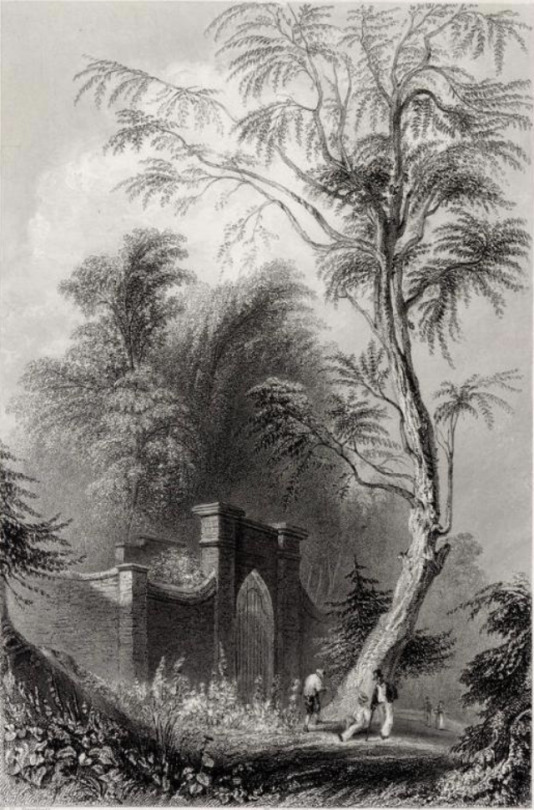
The Tomb of Washington, Mount Vernon Ink on paper; steel plate engraving, etching (1840) by William Henry Bartlett (artist), John Cousen(engraver) and Virtue & Co. Publishing Company
This print shows the tomb of Founding Father and First U.S. President George Washington( February 22, 1732- December 14, 1799) who died in his bed at his family home at Mount Vernon, Virginia and is the location where he is laid to rest in accordance with his last wishes. Before his death he had made provisions for this new brick tomb to be built for him and his wife, the first First Lady of the United States, Martha Dandridge Custis Washington (June 2, 1731 — May 22, 1802). This was necessary because despite the Washingtons best efforts, their original family vault on the property was rapidly deteriorating beyond repair. [1]
William Henry Bartlett (March 26, 1809 – September 13, 1854) was a British artist known for his steel engravings. Born in Kentish Town, London he became one of the foremost illustrators of topography of his generation and traveled the world including vast parts of Europe, the Middle East and North America. In 1835, Bartlett first visited the United States to draw the buildings, towns and scenery of the northeastern states. The finely detailed steel engravings Bartlett produced were published uncolored with a text by Nathaniel Parker Willis as American Scenery; or Land, Lake, and River: Illustrations of Transatlantic Nature. American Scenery was published by George Virtue in London in 30 monthly installments from 1837 to 1839. Bound editions of the work were published from 1840 onward. Bartlett made sepia wash drawings the exact size to be engraved. His engraved views were widely copied by artists, but no signed oil painting by his hand is known. Engravings based on Bartlett's views were later used in his posthumous History of the United States of North America, continued by Bernard Bolingbroke Woodward and published around 1856.Bartlett's primary concern was to render "lively impressions of actual sights", as he wrote in the preface to The Nile Boat (London, 1849). Many views contain some ruin or element of the past including many scenes of churches, abbeys, cathedrals and castles, and Nathaniel Parker Willis described Bartlett's talent thus: "Bartlett could select his point of view so as to bring prominently into his sketch the castle or the cathedral, which history or antiquity had allowed".[2]
John Cousen (1804–1880) born in Yorkshire England he was a British landscape engraver, painter and print maker who apprenticed under the respected animal engraver John Scott. Cousen's involvement with the Art Journal( which was part of Virtue & Co. Publishing Company) , the leading and most popular fine art publication during the nineteenth century, which he worked almost exclusively for as an engraver and print master. From 1849 to 1866 he supplied thirty-two plates, most after works by his contemporaries. The journal provided surveys of important collections to which Cousen contributed; these included paintings in the Royal Collection and the National Gallery. It was while working for the Art Journal that he produced his only known works after Old Masters, including Hobbema's The Old Mill and Berchem's Crossing the Ford. [3]
Virtue & Co. publishing company was a major book and print publishing firm founded by George Virtue in 1820. The success of Virtue & Co was built off George Virtue choice in selecting only the most accomplished artists such as William Henry Bartlett, and employing the best engravers such as John Cousen, to produced books that were rarely surpassed in elegance and correctness for the period. Virtue created a prodigious business, issuing upwards of twenty thousand copper and steel engravings through his career.[4] In 1848 the company acquired 'The Art Union' which became 'The Art Journal' (1839-1912; for a run of impressions in series order from this journal for 1844 to 1870. In 1855 George’s son, James Sprent Virtue, took over his father's business which he had been working at in the New York branch since 1848 and initiated the series of prints after great 'galleries' of pictures including the Royal Collection, Vernon Collection(which this print is a part of) and the Turner Collection. [5]
Citations:
[1]“Tombs.” George Washington's Mount Vernon, Mount Vernon Ladies’ Association, https://www.mountvernon.org/the-estate-gardens/the-tombs/.
[2]“William Henry Bartlett .” Wikipedia, Wikimedia Foundation, 11 Mar. 2023, https://en.wikipedia.org/wiki/William_Henry_Bartlett.
[3] “Collections Online: British Museum.” Collections Online | British Museum, British Museum, https://www.britishmuseum.org/collection/term/BIOG23833.
[4] “George Virtue .” Wikipedia, Wikimedia Foundation, 15 Feb. 2022, https://en.wikipedia.org/wiki/George_Virtue.
[5]“William Henry Bartlett .” Wikipedia, Wikimedia Foundation, 11 Mar. 2023, https://en.wikipedia.org/wiki/William_Henry_Bartlett.
#Explaining one of VTMB paintings#vtm bloodlines#Vampire The Masquerade Bloodlines#john cousen#Virtue & Co#william henry bartlett#print engraving#vtmb
4 notes
·
View notes
Text
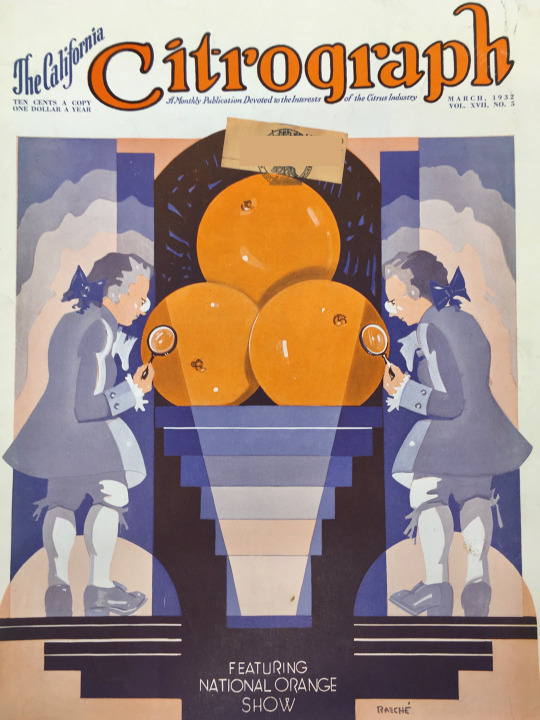
On this Presidents Day, the cover of Citrograph Magazine, published by the citrus industry of Southern California. The 1932 Orange Show in San Bernardino featured an exhibit highlighting the life of George Washington, as 1932 was the bicentennial birthday of the nation's first president (born February 22, 1732). Found this issue in the Arboretum Library in Arcadia.
2 notes
·
View notes
Text
World Famous Leaders and their Zodiac Signs

World-Famous Leaders with their Zodiac Signs
People born under the same Zodiac sign have some, so it’s not uncommon for world-famous people to share a few Zodiac signs. This article will attempt to determine what these star signs are, as well as explore some current and historical leaders and the star signs they bear. The first section of the article, divided into two parts, will list some of the people who have demonstrated outstanding leadership in their chosen sector. The second section of the article will look at it from the perspective of the Sun Signs. From the individual leader’s point of view, the following list enumerates the different leaders and the similarities that they possessed with the characteristics of their sun signs:
Napoleon Bonaparte (Leo)
He was a Leo who was born on August 15, 1769, and he was the one who made his enemies fear him. Leos are represented by lions for a reason; they are the zodiac sign with the most royal leaders. Extroverted Leos are quick to attract others’ attention.Because Leos are controlled by the Sun, they naturally expect others to revolve around them. They are fiercely ambitious and courageous, qualities that helped Napoleon realize his aim of conquering all of Europe at the time.
Martin Luther King, Jr. (Capricorn)
Martin Luther King, Jr., one of America’s and probably the world’s most famous citizens, characterized the civil rights movement for generations to come. MLK was born on January 15th, which made him a Capricorn.MLK was a staunch supporter of black people until his assassination. As a Capricorn, he was careful, calm, and disciplined. His dedication to the subject aided America in reducing, if not eliminating, racial abuse. He was a great leader who received the Nobel Peace Prize before being killed.
George Washington (Pisces)Another important historical figure, George Washington, was instrumental in the victory of the American Revolution. General George was born on February 22nd, 1732, and possessed great military strategy and leadership qualities. George Washington, like the real Piscean, was idealistic and altruistic. He could have been the king himself, but he opted to step aside after two terms as President, establishing the norm of Presidents stepping down after two terms.
Joseph Stalin (Sagittarius)
Joseph Stalin was born on December 18, 1878, in the sign of Sagittarius, and is credited with conquering Berlin and finally defeating the Nazis. Sagittarius is noted for being philosophical, even to the point of losing touch with reality. That would explain why Stalin was a firm communist believer who argued that it was the only way out. Sagittarians are often perceived as having contradictory features, such as being obsessive yet not religious, serious but lacking tact, to name a few. This nicely sums up Stalin’s actions and strategies during the conflict.
From the Sun Sign’s point of view
different because sun signs have varied characteristics, it’s only natural that the following list enumerates the various renowned leaders that each sun sign has had in the past.
Scorpio-
Scorpio is the most powerful sign, possessing the presidents of 22 different countries. Scorpios are known for their determination, but they are also secretive and stubborn. The following are some of the notable countries on Scorpio’s list
Australia || Oman || Iran || Nicaragua || Vietnam || Bolivia || Croatia || Honduras || North Korea || Lithuania || Grenada || Mozambique
Leo–
Leos are a close second, and they are one of the most powerful and faithful zodiac signs. Before Donald Trump, President Barack Obama was a Leo. Leos are known for being patronizing, but they are also energetic and warm-hearted. Currently residing in 18 nations, Leo’s list includes the following notable countries.
Algeria || Colombia || Tanzania || Seychelles || Palestine || Nepal || Mali || United States || France || Greece || Portugal || New Zealand
Sagittarius-
The typical Sagittarius is idealistic in temperament, valuing freedom and philosophy. Winston Churchill was one of the most prominent Sagittarians. Stalin, as previously said, shared the same solar sign as Hitler, intensifying the rivalry between the two. Sagittarius, like Leo, is represented by 18 countries; prominent countries in Sagittarius’ list include:
Brazil || Denmark || Belgium || Poland || Bahrain || Ghana || Jamaica || Nigeria || Haiti || Panama || Vanuatu || Venezuela || Moldova ||
The majority of countries are represented by these three sun signs, with the remainder distributed among the remaining nine sun signs.
#astology#astrologer#horoscope astroyogi#astrology observations#astro observations#astro community#astronomy#Zodiac Signs#zodiac signs
8 notes
·
View notes
Text
Podcast George Washington Golden Age of Radio Tribute
#podcast#radio#nostalgia#talk#otr#golden age#audio#old time radio#history#biography#bio#george washington
0 notes
Text
History
February 22, 1956 - In Montgomery, Alabama, 80 participants in the three-month-old bus boycott voluntarily gave themselves up for arrest after an ultimatum from white city leaders. Martin Luther King and Rosa Parks were among those arrested. Later in 1956, the U.S. Supreme Court mandated desegregation of the buses.Birthday - George Washington (1732-1799) was born in Westmoreland County, Virginia. He served as commander of the Continental Army during the American Revolution and became the first U.S. President.
February 23
February 23, 1942 - During World War II, the first attack on the U.S. mainland occurred as a Japanese submarine shelled an oil refinery near Santa Barbara, California, causing minor damage.
February 23, 1991 - In Desert Storm, the Allied ground offensive began after a devastating month-long air campaign targeting Iraqi troops in both Iraq and Kuwait.
Birthday - African American educator and leader W.E.B. Du Bois (1868-1963) was born in Great Barrington, Massachusetts.
Birthday - Historian William L. Shirer (1904-1993) was born in Chicago, Illinois. As a news reporter stationed in Europe, he witnessed the rise of Adolf Hitler and reported on the surrender of France. Following the war he wrote the first major history of Nazi Germany, The Rise and Fall of the Third Reich.
0 notes
Text
Southern Independence Day - Today In Southern History
22 February 1861
On this date in 1862…
The second and permanent Confederate Congress officially adopted this date for formation of the CSA to honor the 130th anniversary of George Washington’s birthday. (Washington is prominently featured on the Great Seal of the Confederate States)
Other Years:
1732 – First U.S. President and Revelotionary War Commander George Washington was born in…
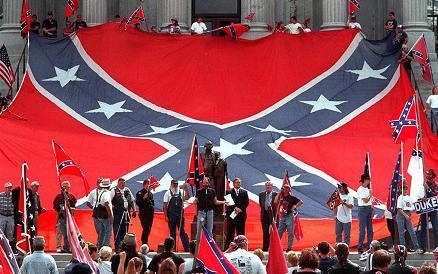
View On WordPress
0 notes
Text

George Washington The Founding Father Who Shaped American History
Introduction:
George Washington, often referred to as the "Father of His Country," holds a revered place in American history. Born on February 22, 1732, in Westmoreland County, Virginia, Washington's legacy extends far beyond his presidency. His leadership during the Revolutionary War, his role in drafting the Constitution, and his tenure as the first President of the United States solidify his status as an iconic figure. Let's delve into the life and accomplishments of George Washington, a man whose name is synonymous with the birth of a nation. Clickhere
0 notes
Text
President's Day
Aloha kākou. Happy President’s Day. According to the website, George Washington’s Mount Vernon, the first President of the United States birthday is February 22, 1732. It used to be that Washington’s birthday was celebrated exclusively on that day. But now we celebrate Washington’s birthday every year on the third Monday in February.
On June 28, 1968, the “Uniform Monday Holiday Act” was passed…
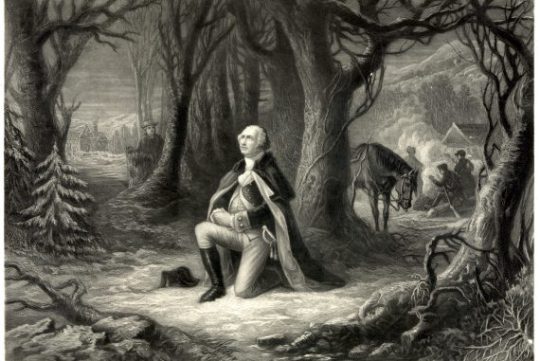
View On WordPress
0 notes
Text

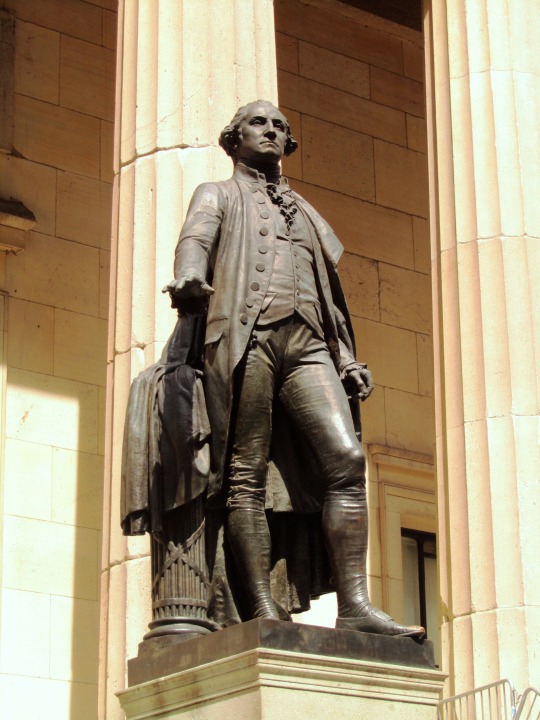



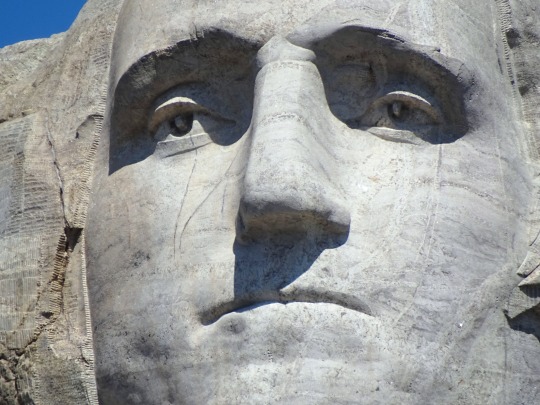

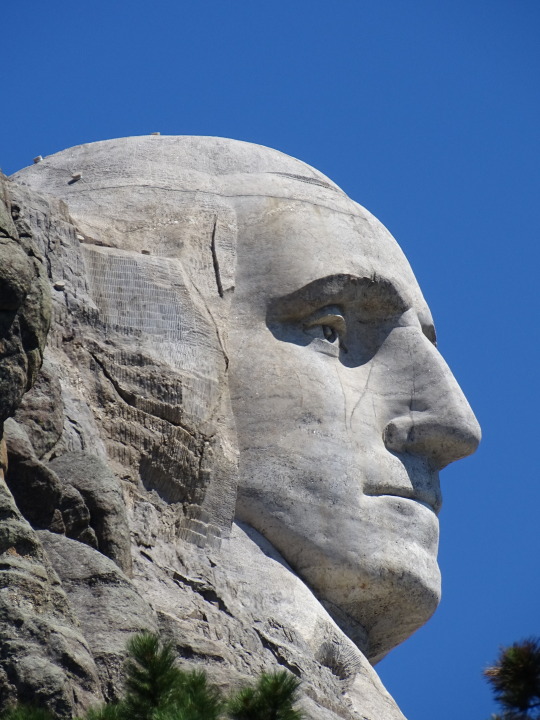







George Washington, American general and politician, first President of the United States, was born on February 22, 1732.
#George Washington#1st US President#born#290th birthday#US history#290th anniversary#Federal Hall National Memorial#Manhattan#New York City#Mount Rushmore National Memorial#Gutzon Borglum#South Dakota#travel#vacation#Henry Kirke Brown#Boston#Massachusetts#sculpture#public art#John Quincy Adams Ward#George Washington's Birthday#GeorgeWashingtonsBirthday#Thomas Ball#Chicago#Illinois#Herald Square Monument#Lorado Taft and Leonard Crunelle#Philadelphia#Pennsylvania#Joseph A. Bailly
2 notes
·
View notes